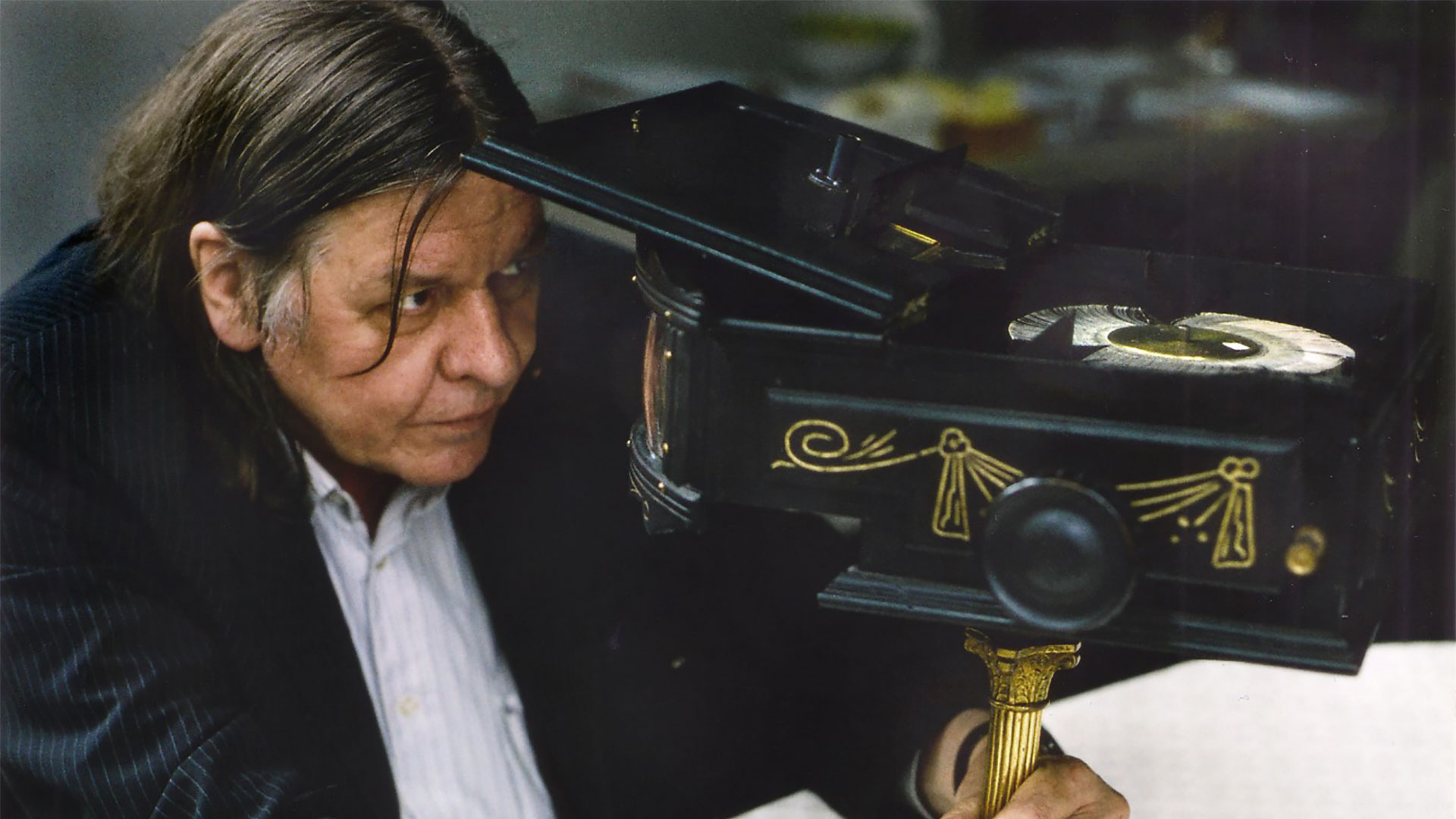Acquisition of the Werner Nekes Collection
A transnational initiative to preserve the unique Werner Nekes collection in Germany
The Werner Nekes Collection, with around 25,000 objects on the history of the visual arts and seeing, is one of the largest collections of its kind in the world. It is as unique as it is outstanding in its diversity and scope. It not only documents visual culture since the early modern times, but also concerns itself with early forms of visual storytelling from a global perspective and with objects from numerous continents. Thanks to the joint efforts of three institutions and eight sponsors, this collection has been preserved for Germany and made accessible to the public: The Theaterwissenschaftliche Sammlung of the University of Cologne, the DFF – Deutsches Filminstitut & Filmmuseum, Frankfurt am Main, and the Filmmuseum Potsdam, as an In-Institute of the Film University Babelsberg KONRAD WOLF, jointly acquired the collection this summer.
The acquisition of the collection was sponsored and supported by the Ministry of Culture and Science of the State of North Rhine-Westphalia, the Federal Government Commissioner for Culture and the Media, the Cultural Foundation of the States, the Hessian Cultural Foundation, the Hessian Ministry of Science and Art, the Ministry of Science, Research and Culture of the State of Brandenburg, the Adolf and Luisa Haeuser Foundation for the Promotion of Art and Culture, the Dr. Marschner Foundation and the Ostdeutsche Sparkassenstiftung together with the Mittelbrandenburgische Sparkasse in Potsdam.
The aim of the buyers is to jointly develop the collection and make it accessible to the public. A digital platform will serve as an instrument for research and documentation of the collection. In the future, exhibits from the collection will be shown in the permanent exhibition of the DFF in Frankfurt am Main, in the show depot of the Filmmuseum Potsdam and in various NRW museums. Plans for a changing and travelling cabinet as well as a larger complete exhibition are currently being developed with the Wallraf-Richartz-Museum. In addition, an exhibition from the collection’s holdings will be curated and subsequently tour worldwide.
The Werner Nekes Collection: From the exclusivity of a private collection to a digital presentation
Werner Nekes was always interested in reflecting on the connections within the media, a project that also made the knowledgeable researcher a passionate collector. Since the late 1960s, he has acquired historical visual media, projection apparatuses, graphics, optical toys, shadow figures, photographs, image carriers as well as related illustrations of historical pictorial practices, and books on optical effects. His library contains 5,550 books. Amongst the approximately 2,400 optical apparatuses are peep-boxes, Laterna Magicae with a rich treasure of Laterna Magica images, phantasmagorias, perspective and shadow theaters, as well as optical toys and early film equipment including the first mass-produced television set from 1926 in a wide range.
For decades Werner Nekes kept his collection in a former leather factory in Mülheim/Ruhr. Nekes‘ wife, the communications and media scientist Ursula Richert-Nekes, remained committed to her husband’s life project after his death in 2017, and finally found worthy custodians for the treasure in the German buyer consortium from three German states.
One collection, three locations
The cooperation of Theaterwissenschaftliche Sammlung der Universität zu Köln, DFF – Deutsches Filminstitut & Filmmuseum, and Filmmuseum Potsdam is a unique opportunity to provide access to the collection to the largest possible audience whilst simultaneously presenting the different perspectives of these three institutions. This will be achieved, among other things, by means of a common digital platform that will give the general public, as well as scientists, authors and filmmakers, the opportunity to explore and research the collection. The aim is to present the collection as a whole and to preserve it in its context, presenting individual objects as well as certain visual processes. A corresponding application to the German Research Foundation for funding this project is in preparation.


